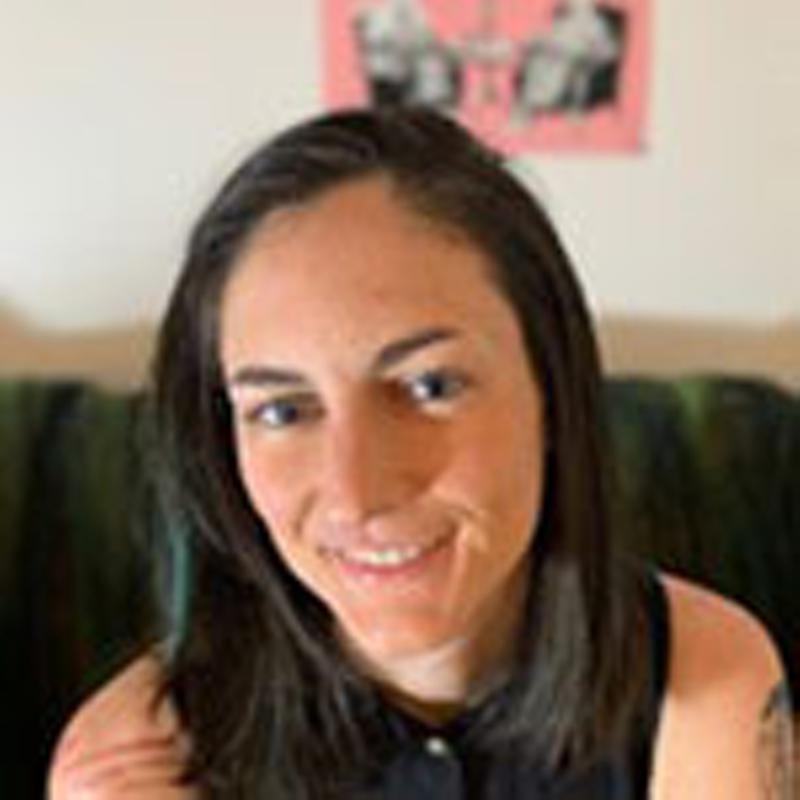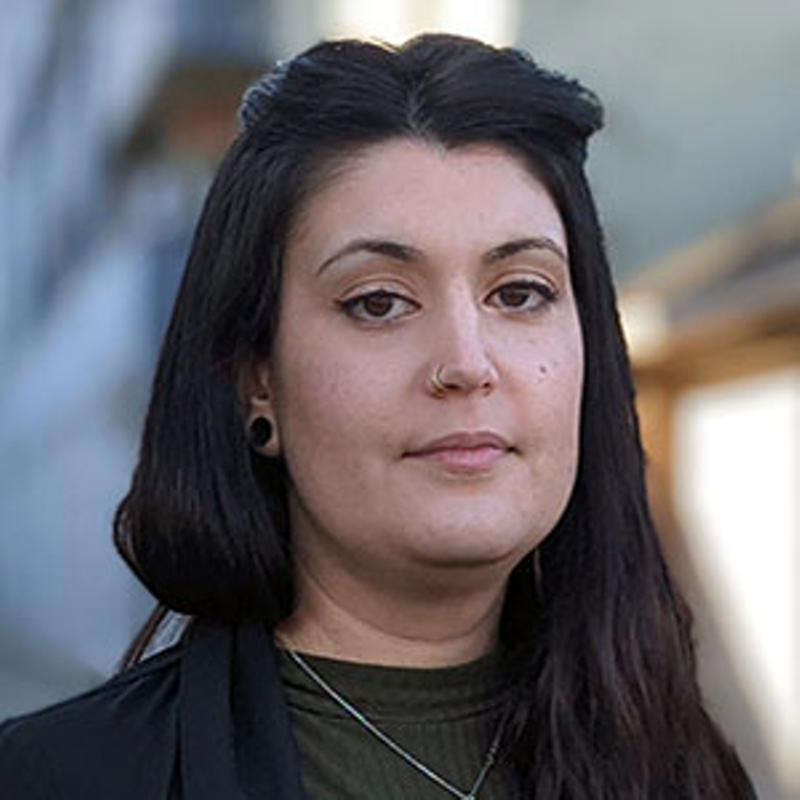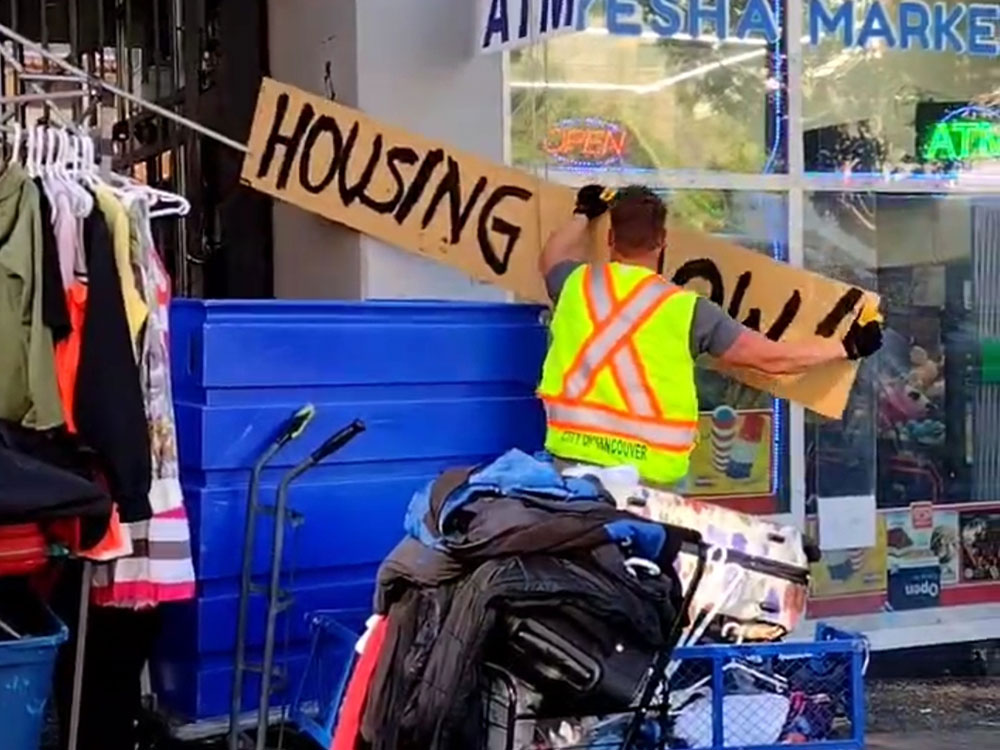This October, residents of Vancouver will elect one mayor, 10 city councillors, seven park board commissioners, and nine school board trustees. In total, there are 138 candidates — a mix of party affiliates and independent hopefuls — running for these 27 positions. If you are feeling overwhelmed by the roster this year, you are not alone.
Drawing on our human rights-based advocacy work with the BC Poverty Reduction Coalition and Pivot Legal Society, we have put together our priorities, specifically looking at what candidates could do to improve social conditions for all residents of Vancouver.
What we want to see
Municipalities have power, and those of us who live here have power through our municipal leaders to either move towards equity or away from it. Municipalities alone, however, cannot solve intersecting social problems — but we do need municipal leaders who will also advocate and build power to influence provincial and federal policy changes.
We need municipal leaders who will not shy away from addressing the human rights violations, discrimination and criminalization that targets Vancouver’s residents.
We’ve put together the key issues we'll be keeping in mind this election, focusing on protecting people from discrimination and disadvantage based on their social conditions through equity-based solutions.
Social condition and equity-based solutions
A person’s social condition is their socio-economic position. It involves disadvantage based on their level of income (poverty), source of income, occupation, housing status and level of education.
Currently, when bylaws are created by the city, they are often based on stigmatizing beliefs that discriminate against people based on their social condition, a characteristic not currently protected under the BC Human Rights Code.
This matters because social condition discrimination plays out in the city’s bylaws, programs and policies, as well as through their enforcement by the police and city’s bylaw officers.
Elected officials can work to improve the lives of people who experience stigma and criminalization based on their social condition.
Our quick audit of bylaws in Vancouver reveals that legislation is used as a tool to displace people who are homeless and precariously housed, such as through street sweeps which rely on street and traffic bylaws being applied to people who rely on public space.
What municipal bylaws can do
Municipal bylaws prohibit people from building shelters in public. The bylaws prevent them from placing objects, structures, obstructions or garbage on city streets, including sidewalks.
Over the summer, we witnessed the use of an emergency fire order to force-evict residents of the Hastings Tent City. It was an order issued by Vancouver Fire Rescue Services and enforced by the City of Vancouver alongside the Vancouver Police Department.
For people who use drugs, municipalities like Vancouver have exercised inappropriate control over overdose prevention sites and harm reduction services across the city. This leads to barriers that other health services do not face, such as zoning limitations, business license denials, bylaw enforcement, stigmatizing public hearings and a targeted police presence to prevent the lifesaving services from opening in the first place or to shut them down once they are open.
We know this is an issue across the province, and Vancouver is not immune.
In the leadup to the October election, problematic and stigmatizing discourse has emerged from mayoral candidates on how to best address homelessness in Vancouver. There is a persistent belief that increased policing will make the city a safer place to live — for everyone who does not currently experience homelessness.
Investing more money into policing and incarceration not only contradicts the city’s own commitment to decriminalizing poverty, but more police on the street will also mean more policing of marginalized community members.
The Vancouver Police Department has targeted Downtown Eastside residents’ belongings with administrative forfeitures, targeted Black and Indigenous community members through street checks, and disproportionately criminalized Black and Indigenous people with drug possession charges.
We are looking for bold leadership from elected officials, and a commitment to turn away from criminalizing Indigenous people in particular — a commitment that all levels of government should uphold, given the gross over-incarceration of Indigenous people in the criminal justice system.
Clear links between poverty and disability
Social condition is also deeply linked to disability justice. Regardless of current legal frameworks that are meant to protect disabled people in B.C., the material conditions that disabled people face in Vancouver are disturbing.
We work alongside many disabled people who experience extreme poverty, and who often find themselves erased from public discourse or even consideration. Aside from the disability assistance rates being kept far below the poverty line, issues like local transit accessibility, access to higher education, non-profit food hubs, civic participation, social networks, dignified housing and other key resources for disabled people are inadequate across all services and sectors.
There is a clear link between poverty and disability in Vancouver where few disabled people can meet their needs through existing government supports. Climate change, extreme weather and the dual public health emergencies of the contaminated drug supply and COVID-19 all have specific, targeted and unmitigated impacts on disabled individuals.
Currently, there is no meaningful inclusion or space for disabled community leadership at the local level, despite the efforts of local organizers and groups such as the Disability Filibuster and Creating Accessible Neighbourhoods.
The inability to provide accessible solutions to overlapping and exacerbating events — for example, cooling centers and cooling devices during the heat domes — is a human rights issue and lays bare how the state is failing disabled people.
Climate justice is tied to ending poverty
Climate justice is also increasingly integral to ending poverty — this includes Indigenous sovereignty over land and resources, mitigating and adapting neighborhoods to climate changes and extreme weather events, green jobs and energy affordability.
We need local decision-makers to create research-based climate impact strategies to protect our communities. Climate justice is not just about going green. It must centre unhoused folks, seniors, Indigenous peoples, disabled peoples and people experiencing poverty, throughout planning, development and implementation in action plans.
Not just a DTES issue
We know that inequality of social condition is not just a Downtown Eastside issue. Across Vancouver, thousands of people are experiencing income insecurity, precarious employment, debt and housing instability alongside increasing costs of living.
Instead of debating whether there is a housing crisis, elected officials could concertedly work towards solving the crisis. They could de-commodify housing to open valuable rental stock for low- and middle-income earners. They could build a minimum of 10,000 new units of pension- and shelter-rate non-market rentals, public housing and co-op housing each year.
They could start this fight as soon as they are elected. They could begin building in 2023.
Elected officials, many of whom also belong to regional decision-making bodies, can push for an equity lens everywhere. They can advocate for equity at transportation planning tables to ensure all forms of transportation infrastructure are free, accessible and safe for at-risk and low-income community members.
As we work with people experiencing poverty and homelessness, we would be remiss to omit accessibility and transportation issues in conversations about equity.
Barriers in accessing transportation include unaffordable fares, people living hours away from their schooling, their food hubs, their workplaces and other supports, and on top of this is the ever-increasing cost of living and fuel, which is not reflected in transportation costs that increase every few years.
City council can make change
Over the last few years, we have seen the capacity that our city council has to make meaningful legislative changes to positively impact the lives of people who live on the margins.
In July 2020, council passed a motion on Decriminalizing Poverty and Supporting Community-Led Safety Initiatives, signalling an awareness within city council about the importance of divesting from policing and investing in community-based services, specifically non-police interventions which would support people who were impacted by homelessness, the toxic drug supply, mental health distress, and those working in informal economies and criminalized industries, such as sex work.
Last year, Vancouver city council also passed vacancy control bylaws, effectively limiting rent increases between SRO tenants. In other words, rental rates would now be tied to the unit, not the tenant, so tenants would not be evicted for landlords to raise the rent in between tenants.
Unfortunately, developments in August of this year meant that the amendments to the License By-law that authorized SRA Vacancy Control were struck down by the B.C. Supreme Court on Aug. 3, 2022, but the city has filed an appeal.
Remember this as you vote this year
We need to see politicians make critical, bold investments to meet the needs of our times and heed the advocacy led by people with lived experience.
We are looking for serious investments into robust public services such as health care, housing, climate justice and social services.
This means prioritizing peer leadership, not tokenization or cherry-picked voices. We are looking for candidates to take a human rights approach, both during their campaigns and their tenure at city hall.
We have the capacity to build the political systems and policy strategies that would provide each of us with everything we need to meet our basic human rights. All it takes is the political will and research-informed, comprehensive policy solutions.
This city, stewarded by the host nations of xʷməθkʷəy̓əm, Sḵwx̱wú7mesh and səlilwətaɬ since time immemorial, has long been a home and place of refuge for many.
Decisions made on this territory must bear that responsibility and reflect planning that is accountable to the individuals and communities most impacted by their consequences. ![]()
Read more: Municipal Elections 2022, Rights + Justice, Municipal Politics



















Tyee Commenting Guidelines
Comments that violate guidelines risk being deleted, and violations may result in a temporary or permanent user ban. Maintain the spirit of good conversation to stay in the discussion.
*Please note The Tyee is not a forum for spreading misinformation about COVID-19, denying its existence or minimizing its risk to public health.
Do:
Do not: